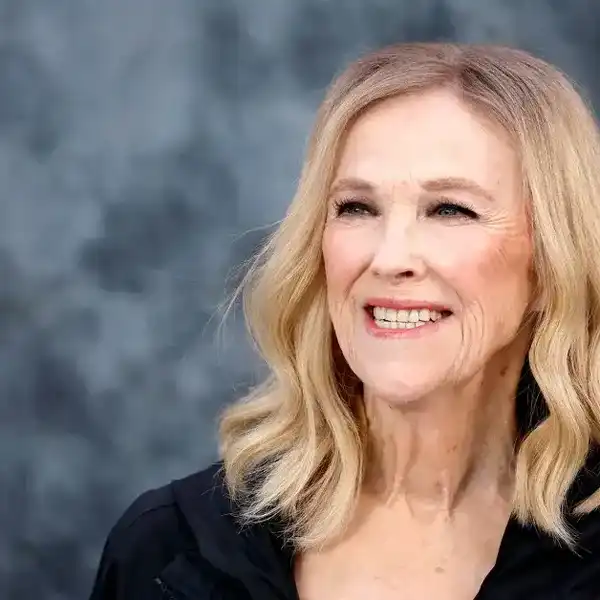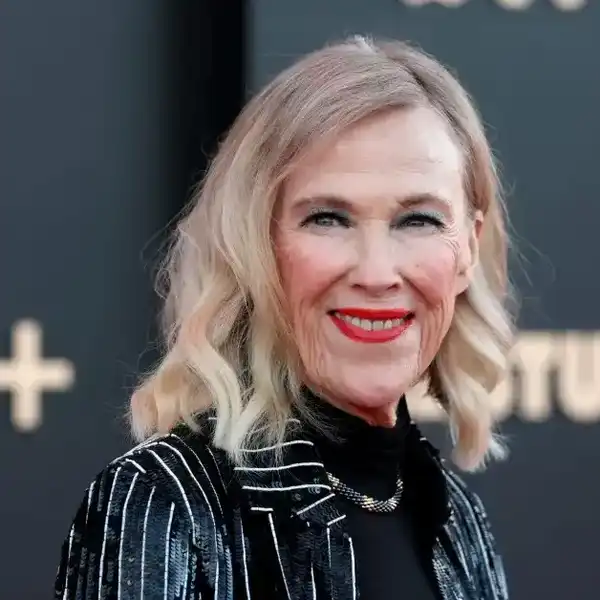
By David Farrell
Judge rules in favour of Bell in Faith Goldy hearing
The main problem is that Goldy, represented by prominent civil rights lawyer Clayton Ruby, brought her complaint to the wrong court.
The CRTC, which regulates broadcasting in Canada, has an expert tribunal for considering complaints in light of various policies set by Parliament. Goldy knew this, but failed to file a complaint with the CRTC, arguing instead that the Ontario Superior Court should hear the case because of its urgency. — Joseph Brean, The National Post
Rogers follows Bell Media in declining Faith Goldy election ads
Rogers Media has recently refused to air her political ad campaigns. This appears to be a change of heart by the media company because they had already aired her ads on their channels before, according to this tweet.
Goldy took to none other than Twitter to express her frustrations and slam the press in Canada. In her tweet, she called the media "the enemy of the people". – Narcity
Faith Goldy's unthinkable faith
The university educated candidate has not been shy with her opinion that white people are a superior race that needs to be protected. She has also supported the Fourteen Words as well as shared her views that immigration is ruining Canada. – Casey Aonso, Narcity
The false claim of the USMCA's cultural protections
While television and computer screens, movie theatres and books in Canada are largely dominated by American products, and the mainstream news media increasingly lacks any critical analysis, we are being told that the United States-Mexico-Canada Agreement (USMCA) contains a significant cultural exemption for Canada.
Imagine that, three neoliberal leaders (U.S. President Donald Trump, Canadian Prime Minister Justin Trudeau, and Mexican President Enrique Peña Nieto) agreeing to protect "our" culture in a "free trade" agreement. – Brent Patterson, The Rabble
NAFTA 2.0 and digital rights: the good, the bad, and the worst
Canada was able to keep its notice and notice legal system for identifying and dealing with hosted content that is allegedly infringing copyright online, which is a good thing, for now. This system allows rights holders to file complaints to ISPs or platforms for alleged copyright infringement and users are then notified, but there is no takedown procedure to remove the content. It operates using the normal principles of justice, innocent until proven guilty, and leaves judgement and punishment to the courts, not businesses. It also ensures legitimate speech is not unnecessarily taken down due to copyright infringement allegations and respects users' privacy.
However, there is a catch. The USMCA outlines that if we are to change Canada's copyright notice regime at any point in the future, our only option is to adopt the notice and takedown system used by the U.S., which is extremely overreaching and often results in legitimate content being censored. (Learn more about the "notice and notice trio" here). – Marie Aspiazu, The Rabble
Fagstein’s Media News Digest, Oct. 15
News about news The CBC and Toronto Star have joined the Trust Project, a global initiative to develop a standard for quality journalism. The Globe and Mail is also a member. This is not to be confused with the Toronto Star's own Trust Project, which is an internal initiative to increase transparency to readers. Or – Steve Faguy blog
CMF releases podcast series: Now & Next
The Canada Media Fund (CMF) has released the first episode of its original podcast series entitled Now & Next. The series will include interviews with experts providing a closer look at emerging trends, as well as the digital transformation of the media and entertainment industry. Now & Next is produced by the Canada Media Fund and hosted by digital media researcher and experienced radio personality, Leora Kornfeld. — CMF
Mobile ad spending to surpass all traditional media by 2020
This year, mobile will surpass TV ad spending by more than $6 billion, according to our latest ad spending forecast. By 2020, the channel will represent 43% of total media ad spending in the US—a greater percentage than all traditional media combined. – eMarketer
AI gets $1B boost at MIT
In yet another indication that artificial intelligence is a big deal today and going forward, MIT is launching a new initiative with serious funding behind it.
Backed by a $350 million gift from Blackstone CEO and founder Stephen Schwarzman, MIT is making a $1 billion commitment to address the challenges and opportunities relating to computing and the rise of artificial intelligence. – Media Post
What’s next for AM radio?
The new FCC proposals continue a trend toward allowing higher power operation by smaller stations, by reducing nighttime signal protection for some 60 Class A AM stations located in the continental United States and 16 stations in Alaska. The end result would be less wide area coverage and more local radio service to the public. — Peter Tannenwald, Radio World
Winamp ready for a reboot
One of the oldest digital music operations is planning a reboot to reflect the streaming-centric times. Winamp began its life as an MP3 player. It has not been officially updated since 2013 and was acquired by Radionomy in 2014. Now, the company is working on relaunch for 2019 that will combine Winamp’s legacy as a platform for owned libraries with features that have become standard for modern music platforms. — Anna Washenko, RAIN News
Zane Lowe knows the industry’s changing, but he’s not scared
Just over three years into Beats’ existence, the world of “internet radio” has already been through a few shifts. At first, it felt like traditional radio, but online. You know, opening a tab on your laptop or phone, and letting a station run, expecting a DJ to talk you through some tunes and maybe have on the odd guest. Community-driven stations cropped up, like Reprezent in south London (RIP Radar, I guess), and more niche ones, from WorldwideFM to London Fields Radio. Through it all, though, Beats emerged as a behemoth, bolstered by the monopoly that Apple hardware has (once you have a device, Beats 1 is yours, for free, at any time during its 24-hour stream). And what I really want to hear about from Zane, a few years in, is how to make sense of being a platform that bridges a gap between the artist and the fan, how to quantify success and what place internet radio holds today. — Tshepo Mokoena, Noisey
Google's AI can spot breast cancer better than humans
According to the firm, its artificial intelligence can detect secondary cancer cells in medical scans with 99pc accuracy. For comparison, pathologists are on average 81pc accurate at detecting these cells when under time constraints. – Joseph Archer, The Telegram
Emmis giving up on Next Radio after years of losses
NextRadio—a costly initiative led by Emmis Communications Corp. to make mobile phones act like smart portable radios—appears to be history after the company said it would no longer fund the effort.
NextRadio, which began in 2012 and operated as a subsidiary of Emmis, was intended to be an industry-wide effort. But Emmis boss Jeff Smulyan said Thursday morning during an earnings call that the consortium he had hoped to build never materialized. Instead, Emmis racked up tens of millions of dollars in losses.
Emmis officials announced this morning that the Indianapolis-based radio company has lost $7.6 million on NextRadio in the last 12 months alone. – Anthony Shoettle, IBJ
Noms open for Worldwide Radio Summit
The annual includes a select number of international categories and takes place at the Castaway in Burbank on March 29, which is as good an excuse to get away from Canada’s winter as any we can think of.
Florida TV stations knocked off air, turn to Facebook Live after hurricane
WMBB, WJHG has been using Facebook Live to produce live streams of news. It could take weeks for the stations to get back to normal.
The city's daily paper, the Panama City News Herald, was also battered by Michael. When the storm made landfall, the station's Twitter feed said, "On generators at office, crashing thunder shaking building. Lost internet, wifi." – CNN
Mixcloud signs global licensing deal with UMG
Universal Music Group has signed a licensing agreement with Mixcloud. The global agreement covers the use of UMG’s music in markets excluding China and Japan. – RAIN News
Apple acquires key people from music analytics startup Asaii
The company's technology ranks artists and tracks across multiple streaming platforms and uses algorithms to detect which are likely to top the charts in the months ahead. The move comes just one month after Apple completed its purchase of Shazam. – Hannah Boland, The Telegraph
Democrats and the liberal media are afraid of Kanye West
CNN’s coverage (of Kanye’s meeting with Donald Trump) was particularly hysterical, alarming and insulting. Rep. Jackie Speier, D-Calif., went so far as to question West’s sanity for meeting with the president. “I felt like I was sitting in on a psychiatrist visit and a commercial for Donald Trump,” she said. Eager to pile on, CNN host Don Lemon ranted against West on Thursday, saying he put on a “minstrel show” for the president, in essence questioning the legitimacy of West’s blackness.
Even before West’s Oval Office meeting, CNN commentator Tara Setmayer said, “He’s the token Negro of the Trump administration.” Another CNN commentator, Bakari Sellers, in an apparently botched and distasteful reference to a decades-old Chris Rock bit, said, “Kanye West is what happens when Negros don’t read.” It is startling that they would choose to use such insulting words and innuendo that I thought had been purged from decent company. But perhaps decent company doesn’t include Democrats or a lot of broadcast journalism anymore. – Ed Rogers, Toronto Sun
The growth of Sinclair’s conservative media empire
Sinclair is the largest owner of television stations in the United States, with a hundred and ninety-two stations in eighty-nine markets. It reaches thirty-nine per cent of American viewers. The company’s executive chairman, David D. Smith, is a conservative whose views combine a suspicion of government, an aversion to political correctness, and strong libertarian leanings. Smith, who is sixty-eight, has a thick neck, deep under-eye bags, and a head of silvery hair. He is an enthusiast of fine food and has owned farm-to-table restaurants in Harbor East, an upscale neighborhood in Baltimore. An ardent supporter of Donald Trump, he has not been shy about using his stations to advance his political ideology. Sinclair employees say that the company orders them to air biased political segments produced by the corporate news division, including editorials by the conservative commentator Mark Hyman, and that it feeds interviewers questions intended to favor Republicans. – Sheelah Kolhatkar, The New Yorker
RIP
Terry Moore, a broadcaster whose career spanned 62 years, has died of cancer at age 82. In the 1970s, Moore moved to Vancouver where he was heard on radio stations CKWX and CJOR before joining CKNW. — The Province


















